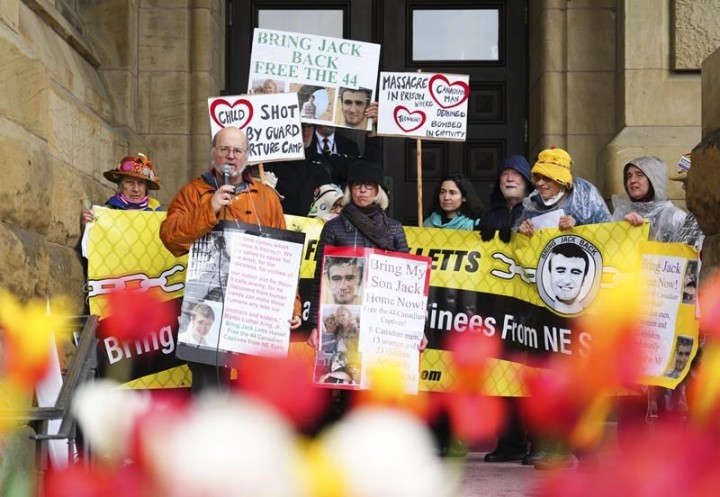OTTAWA — The federal government has told United Nations officials that international human rights law does not obligate Canada to actively facilitate the return of its citizens detained in northern Syria.
Ottawa says that instead, the duty of respecting international conventions largely falls on the foreign state that is holding people captive.
Canada spells out its view in an Aug. 24 response to UN officials who pressed Ottawa about the case of Jack Letts.
Letts, 26, is one of several Canadian citizens among the many foreign nationals in Syrian camps run by Kurdish forces that reclaimed the war-torn region from the extremist Islamic State of Iraq and the Levant.
Letts was born in Oxford, England, but the British government stripped him of citizenship three years ago.
He became a devoted Muslim, went on holiday to Jordan at 18, then studied in Kuwait before winding up in Syria and, his family says, getting captured by Kurdish forces while fleeing the country with a group of refugees in 2017.
John Letts and his wife, Sally, say they have seen no evidence that their son became a terrorist fighter, adding that Jack stood against ISIL and was even put on trial for publicly condemning the group.
“I don’t think he was one of those people who did horrible things,” John Letts told The Canadian Press last December. “I’m convinced of it.”
Canada has repeatedly said its ability to provide consular and other support throughout Syria is very limited due to the lack of a physical presence in the country — a position civil society voices have challenged as a weak excuse.
Lawyers at a London-based law firm submitted a complaint against the British and Canadian governments to the UN on behalf of Letts’s parents.
The complaint says the U.K. and Canada have breached their obligations by failing to take necessary and reasonable steps to assist the young man and have violated international law by withholding consular assistance.
It also argues that the two countries have a duty to protect vulnerable individuals located outside of their territories when they are at risk of serious human rights violations or abuses, and when actions — or a refusal to intervene — can affect human rights.
In a June 8 message to Canada, UN officials who monitor human rights and arbitrary detention said that while they did not wish to prejudge the accuracy of the allegations, they had “serious concerns” about Letts’s continuing detention “and his rights to life, security, and physical and mental health” due to the dire conditions in the camps.
The UN officials requested information from Canada about what it has done to ensure Letts’s well-being and to preserve his rights.
In its response last month, Canada said while it cannot discuss individual cases for privacy reasons, the safety and well-being of Canadians abroad is a priority, and the government aims to deliver consular services in a consistent, fair and non-discriminatory manner.
But it added that Canada believes international human rights law “does not create a positive obligation on states to protect the rights of persons who are detained by foreign entities in another state’s territory.”
“Such persons are entirely outside of Canada’s territory and jurisdiction. Rather, the obligations apply to the state in whose territory the detentions are occurring,” the response said.
“While this does not preclude the possibility that a state might be held responsible for aiding or assisting human rights violations in another state, this would require that the aid or assistance be given with a view to facilitating those wrongful acts. That is plainly not the case here.”
Canada added that while it has received some updates on Canadian women and children in the camps, information about men has been sparse.
The federal government says it has been able to provide some assistance, such as verifying the whereabouts and well-being of Canadians, requesting available medical care and conveying Ottawa’s expectations that Canadians be treated humanely.
“The Government of Canada has also made general requests that affect all detained Canadians on multiple occasions to the Syrian Kurdish officials, such as an update on their current status, and to have phone/messaging access to the Canadian detainees.”
This report by The Canadian Press was first published Sept. 14, 2022.
Jim Bronskill, The Canadian Press
Related




















